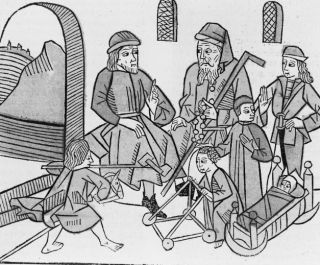Marriage
The Tangled Transition to Adulthood
Are the possibilities of modern adulthood becoming a class privilege?
Posted August 4, 2015

Becoming an adult is much more difficult than it was half a century ago.
Following World War II, the young achieved adult status exceptionally quickly. In 1960, the average American woman was married by the age of 20, with her husband two years older. By age 24, most young people had achieved the markers of adult identity: marriage, children, homeownership, and, for men, a steady job.
Today, the passage to adult status is far slower and much less uniform. The average age of marriage now stands at 27 for women and 29 for men. Meanwhile, unprecedented numbers of young adults have turned away from the traditional emblems of adulthood. A third of young adults appear unlikely to ever marry, by far the highest rate in U.S. history. Rates of childbearing, homeownership, and even car ownership, too, have fallen steeply.
The retreat from these customary symbols of adulthood has produced a great deal of anxiety. A common complaint is that today's twenty- somethings, coddled as children, are aimless, irresponsible, and emotionally immature exploiters of their parents' good will, who avoid commitment and spurn entry-level jobs.
Such complaints are not new. Condemnation of the younger generation is among this country's oldest traditions. The seventeenth- century minister Thomas Cobbett was one of many Puritans who vilified the rising generation for failing to meet the standards of their elders by acting "proudly, disdainfully, and scornfully toward their parents."
A protracted, problematic transition into adulthood is not a new phenomenon. Take the example of Henry David Thoreau. After he graduated from Harvard at the age of nineteen, he was hired as a school teacher, only to resign two weeks later. He then intermittently worked in his parents' pencil factory, served as a tutor, and shoveled manure.
It is simply not true that most young people earlier in American history entered adulthood at an exceptionally early age. In 1890, over half of men first married at the age of 26 or older. Nor did most women bear their first child at an exceptionally young age, but in the early and mid-twenties.
We kid ourselves when we imagine that growing up was easier in the past. For most of American history, the transition to adulthood has been prolonged and angst ridden, as filled with insecurity, self-doubt, and uncertainty as it is today. In 1861, William Watts Folwell, a future president of the University of Minnesota, lamented his inability to chart a clear course in life: "I am twenty-eight years old today," he wrote. "Twenty-eight! And nothing done. My education unfinished - no immediate expectation of being 'settled in life' - rather a sorry picture." Half a century later, the social critic Randolph Bourne, himself in his twenties, described how "in our artificial civilization many young people at twenty- five are still on the threshold of activity."
Today's model for a successful transition to adulthood is based on an exceptional, short-lived period-and circumstances unlikely to return. Despite the sweeping changes that have occurred in American life, the postwar era remains the bar against which we measure the process of growing up.
But the postwar pattern was a fluke. As Stephanie Coontz has noted, the rapid passage to adulthood was based on one positive condition that has since disappeared-- great job prospects and economic security for young men, even those without an education -- and upon one negative condition - women's lack of alternatives to marriage.
And even when this golden age of growing up reached its height, novelists like Saul Bellows and Mary McCarthy, and social critics such as William H. Whyte, author of The Organization Man, had begun to criticize this era for its stultifying conformity and rigid gender roles.
Since that time the transition to adulthood has become much less stultifying and lock step, but also less secure.
And all this is complicated by a new cultural emphasis on youth that prevents us from seeing the positive side of the changes that have occurred. Released from the rigid norms and expectations that defined adulthood in the past, adults are now freer to reinvent themselves at any age, break free from unsatisfying relationships, and treat jobs as opportunities for personal and professional growth.
For many Americans adulthood has never offered so much fulfillment. For others, however, prospects of achieving an economically secure adulthood seem so impossible that many are tempted to say they wouldn't want this anyway.
As a presidential election looms, we need to ask ourselves what it might take to make adulthood seem like a worthwhile and achievable goal? We need to build on the new possibilities of adulthood without making access to it, as so many other parts of modern life, a class privilege.




